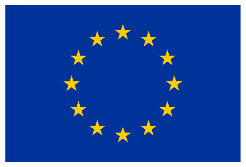Academic Content
Training Tomorrow’s Ocean Leaders
The South African Master of Ocean Sciences (SAMOS) intends to co-develop a new Master programme in the field of Ocean Sciences within a consortium of 9 South African universities and 5 international partners. The aim of this Masters Programme is to form a new generation of multidisciplinary skilled scientists capable of operating in the marine sciences services sector on operational, conservational and research activities. This unique curriculum embraces the global move towards interdisciplinarity in research and teaching, and makes best use of scattered expertise within South Africa. It includes coursework and a minor-dissertation. The coursework structure will expand on the established University of Cape Town (UCT)’s Applied Ocean Sciences (AOS) Masters degree, with the opportunity for students to benefit from the universities and experts, drawn from across the South African and international marine landscape. Those who wish to acquire the knowledge, skills, competencies, attitudes and values which are required to contribute to a sustainable Blue Economy, are encouraged to apply.
For the 2026 launching phase, applicants will register at, and receive the degree from the University of Cape Town (UCT)’s Applied Ocean Sciences (AOS) Masters. Most of the coursework will take place at the Nelson Mandela University Ocean Sciences Campus, in Gqeberha. The Ocean Sciences Campus provides modern and equipped teaching and research facilities. Students will then be given the opportunity to conduct their minor dissertation within one of the SAMOS South African partner universities.
AOS-SAMOS Course Structure
The AOS-SAMOS Masters is a taught Master programme with a research project component. It is a full-time (180 credits) programme commencing in February 2026 and comprising coursework (90 credits) and a minor dissertation (90 credits). Students will also benefit from a number of activities, including a seminar series from international and national experts and site visits to public and private sector stakeholders.
The coursework provides interdisciplinary vocational training in applied aspects of oceanography and marine biology for future ocean professionals. The course is designed for both recent graduates as well as those with minimum five years’ work experience*. Students will gain skills to operate in the ocean services sector, with a focus on operational, conservational and consulting activities in ocean ecosystem’s characterisation, food, water quality and other aspects of the Blue Economy.
*Candidates who don’t meet the academic requirements can apply for Recognition of Prior Learning (RPL) if they meet the requirements which includes a minimum five years’ work experience. Visit the Recognition of Prior Learning Overview page for more information.

The course code BIO5012W represents the overall coursework component and will reflect the overall coursework result. This full-time Master with coursework and minor dissertation is offered over one or two years, with SAMOS-funded students being able to defer the minor dissertation component to the second year.
The curriculum offers a choice of two streams: Applied Marine Biology (BIO5014Z) and Operational Oceanography (SEA5011Z), both of 40 NQF credits, with a common course in Foundations of Applied Ocean Sciences (BIO5013Z) of 50 NQF credits.
The coursework component will mostly be delivered at Nelson Mandela University, Ocean Sciences Campus, Gqeberha over 15 weeks between February and June 2026. Students will be required to be physically present in Gqeberha for the duration of the coursework. Click to view the Ocean Sciences Campus Video at Nelson Mandela University.
BIO5013Z: Foundational Modules
BIO5014Z: Specialised module – Applied Marine Biology
SEA5011Z Specialised modules: Operational Oceanography
Minor Dissertation (90 Credits)
The purpose of this module is to provide students, who want to specialise in a field of ocean sciences, with research design and research project execution knowledge and skills to deal with and address issues and demands related to different ocean sciences disciplines. Students can choose to register for the minor dissertation in a number of disciplines offered by the SAMOS partner universities.
Note that students applying for NRF funding must identify and contact a supervisor and select a research proposal prior to their application. Therefore, eligible students are encouraged to contact the main supervisor of the project they would like to pursue before applying.
Please visit the SAMOS Research thematics page for a list of expertise and potential research projects available across the partner universities.
The Minor Dissertation will take place at the university where the main supervisor is located.
Note: UCT graduations will only take place in March and September. The graduation date will be determined based on the date of submission (as a guideline students who submit by February 2027 should graduate by September 2027; those who submit between March and August 2027 will likely graduate in March 2028 (due to UCT regulations).


